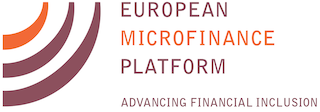 A panel of microfinance luminaries shared their moments of pride and disappointment at the closing plenary of this year’s European Microfinance Week. Yannick Milev of the Cambodian microfinance institution Chamroeun expressed his admiration for the staff members of Chamroeun, who continued to work through the COVID-19 pandemic at significant risk to their and their families’ health because “stopping operations completely would have had a terrible effect on us and on our clients.” Mr Milev added that Chamroeun issued many loans during the early days of the pandemic to help clients diversify in response to the economic effects of COVID-19.
A panel of microfinance luminaries shared their moments of pride and disappointment at the closing plenary of this year’s European Microfinance Week. Yannick Milev of the Cambodian microfinance institution Chamroeun expressed his admiration for the staff members of Chamroeun, who continued to work through the COVID-19 pandemic at significant risk to their and their families’ health because “stopping operations completely would have had a terrible effect on us and on our clients.” Mr Milev added that Chamroeun issued many loans during the early days of the pandemic to help clients diversify in response to the economic effects of COVID-19.
Marc Labie of Belgium’s University of Mons described the pandemic as “a chance for the industry to mature,” resulting in “this chance to try to capitalize on what we’ve learned over the past 30 years.”
Regarding disappointments, Mr Milev cited the usage of financial inclusion by some politicians as a political tool or scare tactic. Sophie Sirtaine of CGAP (Consultative Group to Assist the Poorest) bemoaned the “illusive progress in closing the gender gap” in financial access. Despite the data from the latest Global Findex Database indicating a narrowing of the gap from 9 percentage points to 6 points, many of the owned accounts are in fact dormant. In three years, 215 million women opened financial accounts for the first time, but 250 million women with accounts don’t find them helpful enough to use. Meanwhile, in sub-Saharan Africa, the gender gap grew from 5 percentage points to 12 points over 10 years.
Looking forward, Dr Labie brought up the concept of financial health. It is a broad concept and quite a high bar to achieve – one that has not been reached by many people in high-income countries and even fewer in low- and middle-income countries. “Clearly there is need for innovation,” Dr Labie argued. Banks and cooperatives tend to be conservative, so donors should be investing in innovation via NGOs. To reduce risks, he proposes better corporate governance – an area that should be harnessed to prevent problems rather than being sidelined until a problem arises. Similarly, regulation has improved in many countries, but supervision has not kept up. The sector needs more supervisory staff with better training.
As for opportunities, Ms Sirtaine argued for working simultaneously on more concrete goals such as improving telecommunications infrastructure while not shying away from more elusive goals such as reaching youth, forcibly displaced persons and other underserved populations.
Dr Labie argued for more usage of “standardized flexible products” that move from social pressure to repay loans toward positive incentives. For example, a product can offer a refund of a portion of the interest paid if every payment is made on time. SafeSave of Bangladesh (now a part of BRAC) developed a product whereby the borrower could repay on her own schedule as long as she maintained a savings balance of at least one third of her loan balance.
Ms Sirtaine argued for building resilience to help people avoid resorting to regressive solutions to shocks. Even a very basic account can help, for example, to receive money from a family member during an emergency. The sector needs to “go beyond access and usage to empower poor people to embrace better futures,” she said, including through continued efforts to ensure consumer protection. Meanwhile, some very poor people are more in need of social services rather than innovative financial services.
Laura Hemrika of Credit Suisse, who serves as chair of the European Microfinance Platform (e-MFP) closed the conference, which was attended by 550 people – nearly half remotely. Echoing Dr Labie, she cited the maturity of the financial inclusion sector. Ms Hemrika claimed the sector is clear now on the need to focus on serving women and addressing climate change. This clarity allows more attention to go to how to do these things. The answers, she proclaimed, include leveraging collaboration, transparency and “keeping the client at the heart.”
This feature is the last in a sponsored series on European Microfinance Week, which took place in Luxembourg and online from November 16 through November 18. MicroCapital has been engaged to report on the conference each year since 2012.
Additional Resources
European Microfinance Week 2022
https://emw2022.eu
MicroCapital coverage of European Microfinance Week since 2012, including the European Microfinance Award
https://www.microcapital.org/category/european-microfinance-week/
Similar Posts:
- SPECIAL REPORT: Chamroeun Microfinance Scaling Up to Fund SMEs Supplying Piped Water in Cambodia
- SPECIAL REPORT: Sounding Alarm Bells on Financial Health: Inclusion Is Not Sufficient
- SPECIAL REPORT: Leveraging Financial Inclusion to Get Food Security Back on the Increase #EMW2023
- SPECIAL REPORT: Fintechs vs MFIs – a Debate at European Microfinance Week
- SPECIAL REPORT: European Microfinance Week Is Almost Here!
